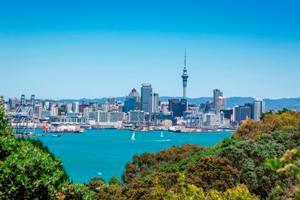Battleground Auckland
Pressure for demand-side measures is growing again as political opponents attack the government over Auckland’s irrepressible housing market.
Thursday, April 14th 2016, 2:00PM
by Miriam Bell

Rising prices, growing unaffordability, and an ongoing supply shortage in the SuperCity were causing widespread concern this time last year.
In an effort to contain the situation, both the government and the Reserve Bank introduced a range of measures – including new tax rules, new LVR restrictions and supply-side initiatives.
Initially, the market appeared to respond.
Late last year and over the first months of this year, Auckland’s previously red hot market slowed considerably.
However, many commentators said the lull was not likely to last because supply, even with the new initiatives, simply cannot catch up with, let alone meet the high demand.
Now, that is proving to be the case.
All of the recent housing market data provides evidence that Auckland’s market has bounced back into action and its prices are on the rise again.
Once again, this worries many.
The Green Party has released new analysis which shows Auckland’s median house prices are now 9.22 times the median annual income.
Green Party Co-leader Metiria Turei said that, internationally, a ratio of 3 is considered affordable.
“When houses cost more than 9 times peoples’ annual incomes, it’s clear that Kiwi families are being shut out of home ownership in Auckland.”
She said the introduction of Special Housing Areas (SHAs), LVRs and the bright line test clearly haven’t made a big difference to the city’s housing crisis – or to many wanting to buy a house.
“We need the government to introduce strong measures to stop pretty speculation like a proper capital gains tax (excluding the family home) and restrictions on foreign property ownership.”
Turei also said the government should build lots more affordable, new houses and support quality medium-density housing around public transport routes.
Labour’s Housing spokesperson Phil Twyford agreed there should be restrictions on “offshore speculators” and that the government should be embarking on a big affordable housing building programme.
However, he said new documents showed that one of the government’s supply-side initiatives was already proving to be a fiasco.
In last year’s Budget, Building and Housing Minister Nick Smith announced the government would be identifying and selling parcels of currently underused Auckland Crown land for private housing development.
Twyford said the documents show some of the land identified as part of the proposal is already occupied, while many of the other land parcels are too small to build on.
“This fiasco just keeps growing after Nick Smith revealed today that the government has only identified 25 hectares of Crown land that can be developed, after promising 500 hectares last year.”
Youth group Generation Zero have also joined the fray, saying Auckland’s record prices are preventing young people from being able to buy a house.
But they are focused on the need to increase housing supply by passing the Unitary Plan.
Spokesperson Ryan Mearns said the latest house price data demonstrates the strain being put on the housing supply in Auckland by current planning rules.
“At the heart of rising house prices is increased demand with more people living in Auckland, and a lack of new housing supply.
“By allowing for intensification and upzoning the Unitary Plan will allow more houses to be built increasing housing supply, and easing rising house prices.”
The city’s record high house prices should be a warning to Auckland councillors that they need to vote to pass the Unitary Plan as soon as possible, Mearns said.
Meanwhile, both Prime Minister John Key and Finance Minister Bill English have told media they will continue the drive to increase Auckland’s housing supply – rather than adopt new demand-side measures.
Key said there may be a lag in supply but the strategy would eventually work, while English, with a nod to the Unitary Plan, said they were encouraging Auckland Council to expand supply faster.
| « Two thirds of MPs are investors | Free Investment Property Showcase Events: Auckland, Wellington and Christchurch » |
Special Offers
Comments from our readers
No comments yet
Sign In to add your comment
| Printable version | Email to a friend |



